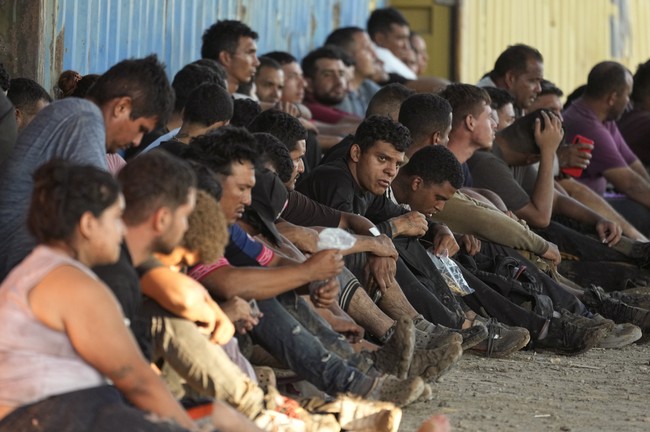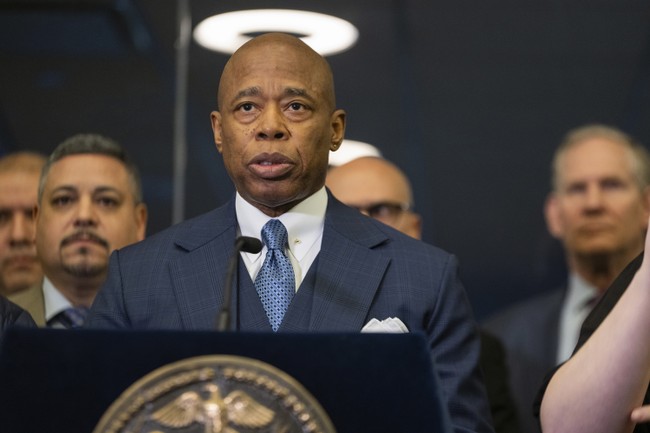Controversy Surrounding FEMA's Spending Practices
A storm of critique has clouded FEMA as allegations of rogue spending on housing migrants in luxury accommodations emerge, posing questions on its role and oversight.
Published February 12, 2025 - 00:02am

Image recovered from townhall.com
The Federal Emergency Management Agency (FEMA) finds itself at the heart of a major controversy following recent allegations of unauthorized spending on housing for migrants. Reports emerged detailing how several employees allegedly circumvented official protocols to allocate funds for luxurious accommodations in New York City. While the figures cited reach as high as $59 million, this incident has sparked a broader debate about FEMA's operational oversight and financial accountability.
Critics, including prominent figures like Elon Musk, have questioned the agency's allocation of funds. Following a public outcry on social media, FEMA was forced to address these allegations, with high-ranking officials stating that they would hold accountable any personnel involved in unauthorized dealings. This controversy highlights significant scrutiny over FEMA's role, particularly under the new leadership emphasizing cost-cutting and efficiency.
The situation intensified as Elon Musk, now heading the Department of Government Efficiency, flagged FEMA's spending as a significant issue, calling it an act of insubordination against government directives. The administration appears poised to review FEMA's entire operational structure, raising the prospect of dismantling or significantly restructuring the agency. This stance has garnered both support and criticism, reflecting a deep division in perceptions of FEMA's value and efficiency.
FEMA's mandate, established in 1979 under President Jimmy Carter, was to coordinate the federal response to natural disasters – an essential task, given the increasing frequency of extreme weather events. The agency's scope extends to orchestrating resources and federal aid to help states tackle disasters they cannot manage alone. Whether in coordinating first responders during situations like Hurricane Ian or providing crucial financial relief, FEMA's role is traditionally seen as pivotal.
However, the current pressure on FEMA is not the first of its kind. The agency has historically faced criticism, particularly regarding its handling of disaster relief and allocation of resources. For instance, past audits have cited mismanagement amounting to billions of federal funds. The controversy over migrants being housed in luxury hotels adds yet another layer to the complex narrative surrounding FEMA's capabilities and the political captaincy over its operations.
The agency's defenders argue that it provides indispensable support, enabling states to confront and recover from disasters effectively. In times of crisis, FEMA's prompt distribution of aid and coordination is seen as critical by state and local governments. The argument against its dissolution centers around the potential chaos and inequality that might ensue if states lacked a federally coordinated response mechanism.
Those advocating for its downsizing or restructuring, however, assert that FEMA has become bloated and inefficient. They propose employing existing state resources and a more decentralized approach to managing disasters. Some even suggest that existing military resources, including the National Guard, could assume more responsibility in emergency management.
Furthermore, several state legislators have expressed concerns over whether they could realistically manage disaster responses without the agency's oversight. Smaller and financially weaker states, in particular, could face significant challenges in mustering the necessary resources. Critics warn that removing FEMA's centralized support may exacerbate socioeconomic disparities, where wealthier states cope while poorer ones suffer prolonged recoveries.
Amidst this heated debate, FEMA's fate remains uncertain. The agency's current turmoil underscores a pivotal moment for governmental reform advocates and defenders of federal emergency management. As discussions continue, with Musk and other federal officials closely involved, the future of disaster response in the United States hangs in the balance. It remains to be seen whether FEMA will emerge reformed, diminished, or replaced altogether within the federal disaster response framework.






